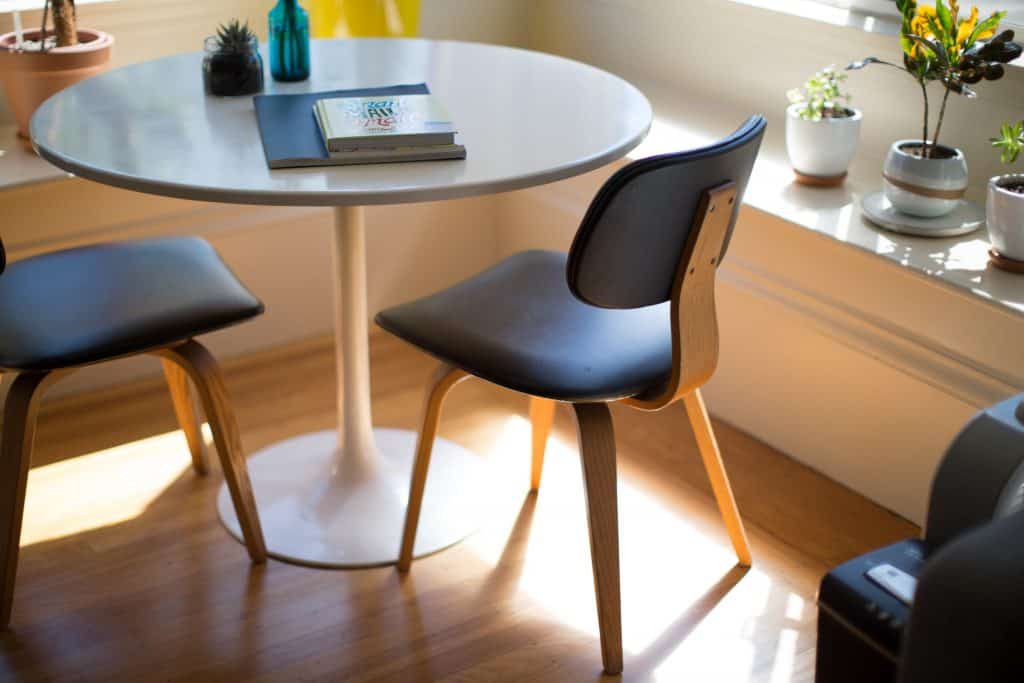Paper piles up quickly so I wanted to share a way to clear paper clutter with this relevant vs. interesting hack.
It provides criteria for making the decisions needed to keep only the best information on the pieces of paper.
Many of my clients are kind of frozen over which paper they need to keep. Not knowing keeps them from dealing with the paper piles at all. This method of deciding will get you moving forward.
It isn’t the paper that needs to be kept, but the information that is stored on the paper. Just like any other organizing project, like things need to go together, a place for keeping it needs to be established and a plan for maintaining it needs to be developed as it evolves.
To simplify the process, you only need to keep one, the best version, of information that is both interesting and relevant to you currently, with one exception. I’ll get to that later.
Most of the paper you are hanging onto proves that you already know something. That’s right, you get interested in something and you study it and accumulate the information about that thing. The best stuff is what you incorporate and use right away.
The information on the paper isn’t relevant without a context. How will you use it in the future, if you will use it at all?
Knowing how and when you use the information will give clues as to if and how to keep it. Maintain the context of the information by tying it to other related information for storage and you will also always know where to find it.
We tend to save information we are interested in without thought. It’s time to become mindful and think.
Start with any pile of paper. Pick up one piece. Remember, you will be keeping only the information that is currently relevant and interesting enough to use.
- Take a moment to scan and see if it is information that you already know and use. If so, you don’t need it, recycle it.
It just takes up space to save the notes you took on how to do something when you already do it without the notes. Unless you are planning on delegating it as a task at some point – then turn it into the checklist, or training materials you need it to be.
- Is it relevant for someone else? Either give it to them really soon, or let it go and believe that they will come across the information they need when they need it. The person it is really important to is not going to find it at your house. In fact, 99% of people could go their whole lives and not find that information relevant, so you don’t need to keep it for them.
- Do you think it is relevant to you? Ask yourself why? If the only answer is that it is interesting, let it go. If the answer is it is interesting and you know how you are going to use the information, keep it with the other pieces for that use.
Once you deem it good enough to save it is good enough to find when needed. Information is good enough to save if it supports your efforts as a current resource or reference that actually get looked at regularly.
That will make it easy to eliminate the pieces of information that contradict your way of looking at it. If you already know a method and have decided it doesn’t work or new information makes it outdated, more difficult or no longer worth the time, it is time to get rid of it.
- Review the pieces that you thought were relevant. Keep the best versions, create the checklists, enter the data, write the article etc.
Finding a few ways to explain the information will get you through most things. Knowing where to look for the information the other times is key. That means a storage method that allows you access rather than an “it’s here somewhere” pile.
- The pieces that are really a future project idea need further review. Either schedule when you will do the project and store the materials together and out of the way until then. Or let it go.
I know a few of you are saying “but it’s so important, someone should…” Either do it yourself or donate to an institution that will store it for you until someone thinks so too. Who knows, you might just create a job.
- The exception is any documentation that proves you are a citizen or have had dealings with the government. They might not be interesting or current but I recommend you come up with a storage spot for them anyway – because they are proof of existence. Or are they?
Information that is merely interesting is for curiosity’s sake. Read it, say “that was interesting” and let it go. In a few days, if it was relevant you will remember it. If not you won’t miss it.



